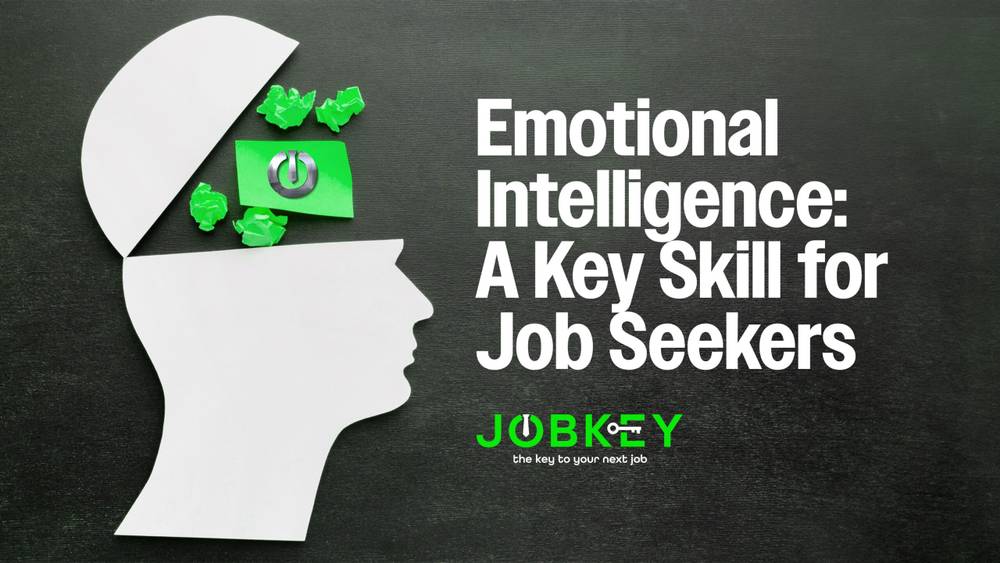
In the competitive job market of today, possessing technical skills and qualifications is no longer enough to secure your dream job. Employers are increasingly looking for candidates with strong emotional intelligence (EI), a crucial skill that can significantly impact your job search success. This blog explores the role of emotional intelligence in the job search and provides tips on how to demonstrate it to potential employers.
Understanding Emotional Intelligence
Emotional intelligence is the ability to recognize, understand, and manage your own emotions, as well as the emotions of others. It encompasses several key components:
- Self-awareness: Recognizing and understanding your own emotions and how they affect your thoughts and behavior.
- Self-regulation: Managing your emotions in healthy ways, controlling impulsive behaviors, and adapting to changing circumstances.
- Motivation: Being driven to achieve goals for personal reasons beyond external rewards.
- Empathy: Understanding and sharing the feelings of others, and responding appropriately to their emotions.
- Social skills: Building and maintaining healthy relationships, effectively communicating, and resolving conflicts.
The Role of Emotional Intelligence in Job Searching
Enhances Communication Skills
- Effective communication is critical in job searching, from writing a compelling resume to acing an interview. Emotional intelligence helps you convey your thoughts clearly and respond appropriately to questions and feedback.
Improves Interview Performance
- Interviews can be stressful, but high emotional intelligence allows you to manage anxiety, stay composed, and present yourself confidently. It also helps you read the interviewer’s cues and respond thoughtfully.
Builds Strong Professional Relationships
- Networking is a vital part of job searching. Emotional intelligence enables you to connect with others on a deeper level, fostering relationships that can lead to job opportunities and valuable referrals.
Facilitates Conflict Resolution
- Workplace conflicts are inevitable, and employers value candidates who can navigate disagreements diplomatically. Demonstrating emotional intelligence shows that you can handle conflicts constructively and maintain a positive work environment.
Demonstrates Leadership Potential
- Emotional intelligence is a hallmark of effective leaders. By showcasing your EI skills, you signal to employers that you have the potential for leadership roles and can contribute to a collaborative and productive workplace.
Demonstrating Emotional Intelligence to Potential Employers
Showcase EI in Your Resume and Cover Letter
- Highlight experiences that demonstrate your emotional intelligence. For example, describe a time when you successfully navigated a conflict, led a team, or supported a colleague through a challenging situation.
Provide Examples in Interviews
- Prepare stories that illustrate your emotional intelligence in action. Use the STAR method (Situation, Task, Action, Result) to structure your answers and clearly demonstrate your EI competencies.
Ask Thoughtful Questions
- During interviews, ask questions that reflect your emotional intelligence. Inquire about the company’s culture, how teams handle conflicts, and the support systems in place for employee well-being.
Practice Active Listening
- Show genuine interest in the conversation by practicing active listening. Nod, make eye contact, and provide feedback to demonstrate that you are engaged and understand the interviewer’s points.
Display Self-Awareness and Regulation
- Be mindful of your body language and tone of voice. Stay calm and composed, even when faced with difficult questions. This demonstrates your ability to manage your emotions and handle stress effectively.
Highlight Team Collaboration
- Emphasize your ability to work well with others. Share examples of successful collaborations, how you resolved team conflicts, and the positive outcomes of your cooperative efforts.
Conclusion
Emotional intelligence is a key skill that can set you apart in the job search process. By understanding and managing your own emotions, empathizing with others, and building strong relationships, you can enhance your communication, improve your interview performance, and demonstrate your potential as a valuable team member and future leader. In 2024, make emotional intelligence a focal point of your job search strategy and watch as it opens doors to new and exciting career opportunities.





